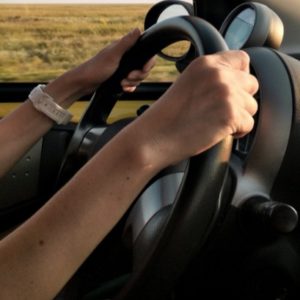 Motorists have been urged to consider their everyday driving habits in case they’re breaking the law unknowingly.
Motorists have been urged to consider their everyday driving habits in case they’re breaking the law unknowingly.
The driving and car rental experts at StressFreeCarRental.com have revealed a list of laws that many Aussie drivers may not even realise they are breaking.
From leaving keys in the ignition to throwing apple cores and banana peels out of the car, there are many unsuspecting motoring laws that can catch out even the safest and most knowledgeable drivers.
Many of these offences can carry hefty fines or penalties. For example, if you have a pet on your lap whilst driving, owners could face up to six months’ jail and fines of up to $5,500.
A spokesperson from StressFreeCarRental.com said “We know we need to strap on our seatbelts, stop at red lights, avoid speeding, and stay off mobile phones. But there’s more to road rules than the obvious.
“There are many rules of the road that we may not have been directly taught when learning to drive but are very important to know in order to avoid fines. There’s actually a long list of obscure laws many Australians haven’t heard of – and often, they differ from state to state.
“Motorists often assume that the legalities of the road are simple and self-explanatory; however, this is not the case. Being wary of the less obvious rules, regulations and laws can keep Aussie drivers out of trouble with the law.”
So what should you do to stay safe on the roads and avoid breaking the law? Here is StressFreeCarRental.com’s list of laws you need to know.
Improper use of a horn
Did you know beeping goodbye to your family as you drive off after dinner, or honking at the vehicle that cut you off is actually illegal? Officially, you’re only supposed to use your horn if you’re warning other road users of your approach.
In the past five years, it’s been reported that more than 800 people have been fined for improper use of a horn in New South Wales (NSW) alone.
Throwing apple cores and banana peels out of the car window
Sure, fruit is biodegradable, but you can still be fined for littering. For example, in Queensland, the crime of “dropping injurious matter on a road” can cost you $533 and two demerit points.
Leaving keys in the ignition
You’ve most likely seen someone quickly getting out of their car to get a car park ticket or pick up their takeaway dinner and leaving the car running with the key in the ignition.
While it might be convenient, it’s not smart to leave your key in the ignition unattended. In NSW it’s a traffic offence that will cost drivers $114. It’s reported that around 1,000 people a year receive this fine in NSW.
Having children or animals on your lap
Children must always be seated in proper child restraints, and animals or pets should be seated or restrained in an appropriate area of the vehicle. As well as the Australian Federal Police, the RSPCA can also issue fines under The Prevention of Cruelty to Animals Act.
If an animal, such as a dog, is injured in a car because it was unrestrained, owners could face up to six months’ jail time and fines of up to $5,500.
Leaving your fog lights on
Fog lights, both front and rear, should only be used in rain or fog, or when your vision is impaired by smoke or dust. Once you can see clearly, drivers need to turn them off or be on the receiving end of a fine.
Driving with an unregistered trailer
Pretty straightforward, but often overlooked, don’t forget to register your trailer or you be fined up to $686.
Don’t splash pedestrians!
We’ve all seen it in the movies, or on viral social media videos, where pedestrians get intentionally splashed by drivers on a rainy day. As funny as it might seem, it’s actually another traffic offence!
Not winding up your windows
This one is very peculiar, but in Queensland, if you’re more than three metres away from your car, your windows need to be up with a gap no greater than 5cm.
You must secure/lock your vehicle before leaving it parked on a road. Your vehicle is considered unattended when you are more than 3m away from it. And before you leave the vehicle, the government states that you should wind up the windows if possible—a gap of 5cm or less is acceptable.
















